Generation COVID
A new generation of “pandemic bands” are taking to the stage to revive Vancouver’s live music scene

As Canada moves on from the effects of COVID restrictions and lockdowns, its live music community continues to heal from the damage caused by the pandemic, and a new generation of musicians is beginning to take center stage.
COVID was a severe nationwide problem for Canadian musicians, with CBC reporting that “the death of live music” during the height of COVID restrictions has left many pre-pandemic Canadian bands and musicians unable to make ends meet.
As well, a report published in December 2020 by the Canadian Independent Music Association on the impact of COVID on the Canadian music industry stated that the lack of live music has resulted in an evaporation of CAD $233 million in just the six months following the implementation of the initial COVID restrictions.
The report stated that out of the whole Canadian music industry, independent and emerging Canadian musicians were most impacted by the pandemic because of a lack of opportunity for audience development through live concerts, which left musicians unable to fully promote their songs and albums.
One of the report’s findings was that already underrepresented and excluded groups in Canada’s music industry, such as women and BIPOC Canadians, suffered the most from the effects of the pandemic on Canada’s music industry.
However, the pandemic restrictions have caused a reset for Vancouver’s live music community, enabling new opportunities for an aspiring, diverse group of local musicians to take to the stage at local music venues.
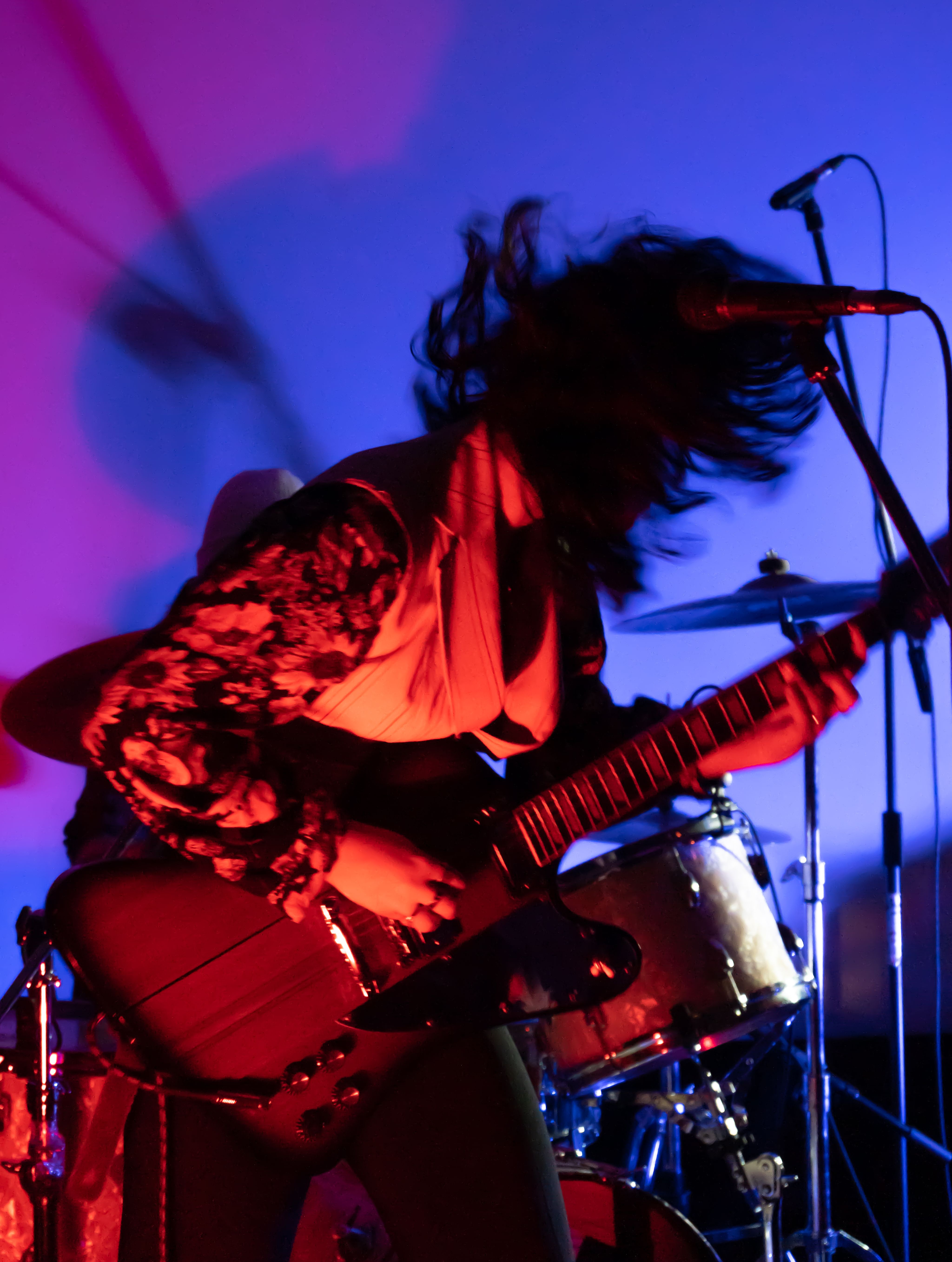
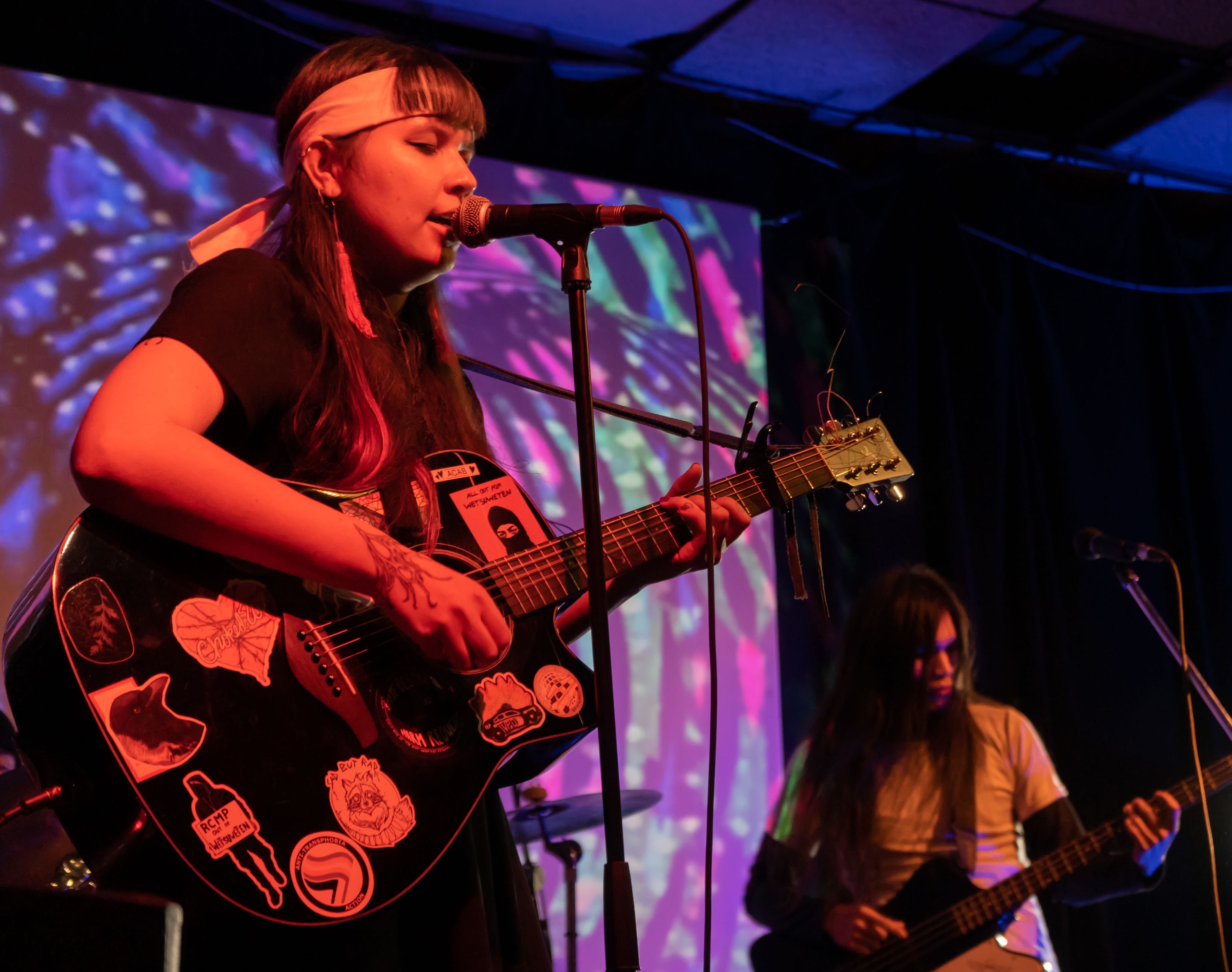
Jeff Cancade:
“Ithink that for bands who were performing quite a bit before COVID, [the pandemic] killed the momentum for them,” said Jeff Cancade, a veteran member of Vancouver’s local live music community who has performed over 150 live shows in Western Canada as his stage persona: Devours.
“It was terrible. Basically, we were told by the government that we were the least essential members in society, and our livelihoods were just sort of axed for two years.”
Cancade said he knows many local Vancouver bands that successfully performed live music in Vancouver before the pandemic but have struggled in the past two years because of restrictions on live concerts.
“A lot of bands before COVID just aren’t really doing much now … COVID was a reality check for a lot of slightly older musicians who were like, ‘okay, this is not a way of making a living.’”
However, the pandemic has had a silver lining for some new young, ambitious local Vancouver musicians. While the COVID pandemic was very detrimental to the pre-COVID generation of bands, a new breed of “pandemic bands” are emerging from the period of COVID restrictions and seizing on the reinvigorated interest in Vancouver’s live music scene.
“I mean, so much changed during COVID. A lot of bands that I used to play shows with broke up. But a lot of bands formed during COVID, and they’re finally getting to perform," said Cancade. "It really feels like there’s been a generation switch within those two years.”
This new generation shift is embodied by two new “pandemic bands,” Gadfly and SoyJoy, who have recently begun to make their own unique mark on Vancouver’s revived concert community.
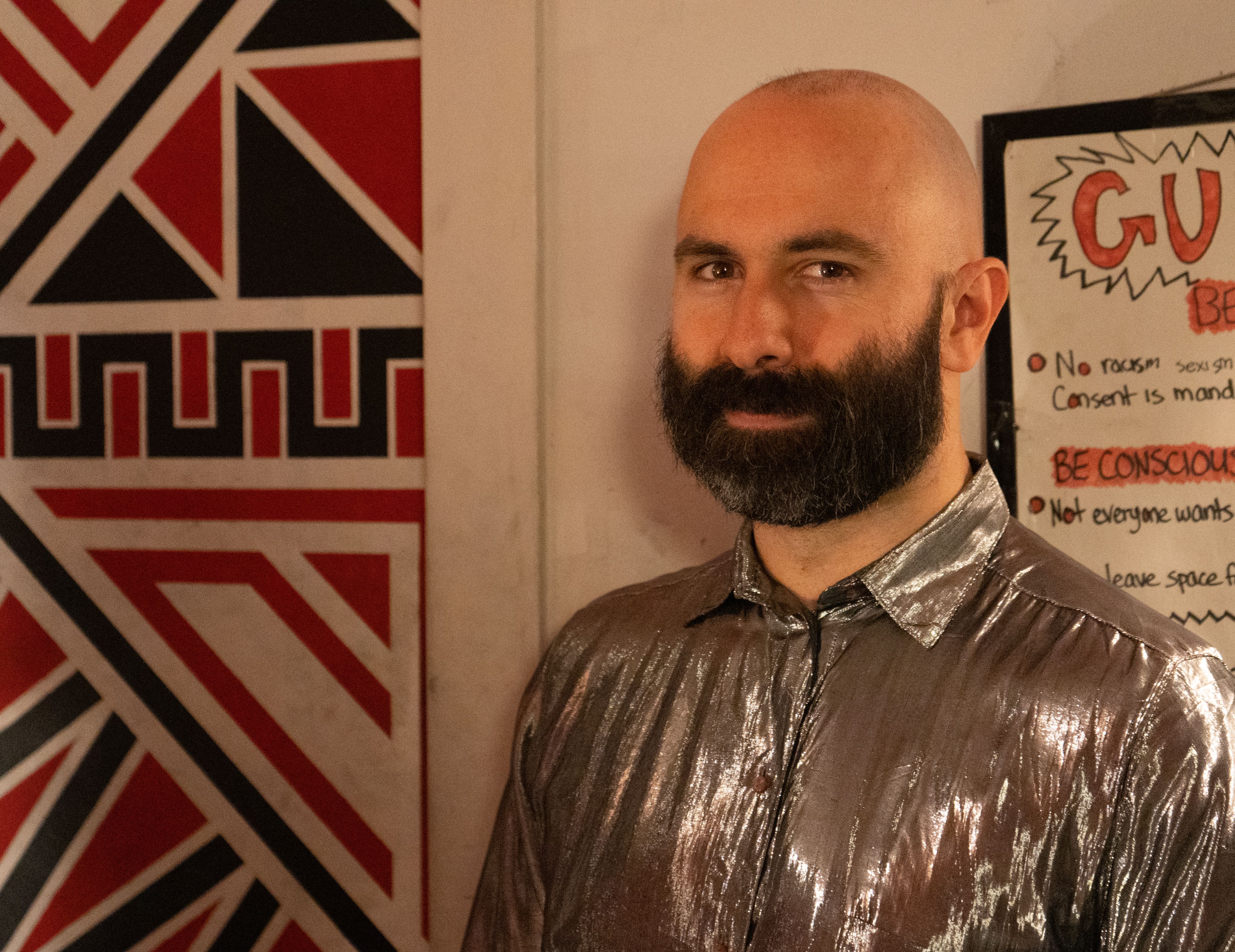
Jeff Cancade, aka Devours, was one of the three judges of the 2022 CITR Shindig Battle of the Bands
Jeff Cancade, aka Devours, was one of the three judges of the 2022 CITR Shindig Battle of the Bands
GADFLY
Guitarist and vocalist Homa Khoshnavaz, drummer Nigel Young, and bassist Peter Quelch are the three members of the metal band Gadfly.
Gadfly identifies as a “Persian metal” band that fuses “stoner metal” with Persian scale and Farsi lyrics to create an exceptionally unique sound.
The Persian influence comes from Homa, who immigrated to Canada from Iran in 2018.
Homa said that she has always been a big fan of rock and metal bands, and because of this, she wanted to fuse “Persian scales and Persian sound” with a “Western metal sound” for Gadfly’s newest album.
Gadfly's band members first began playing music together during the height of the pandemic restrictions in the Summer of 2020.
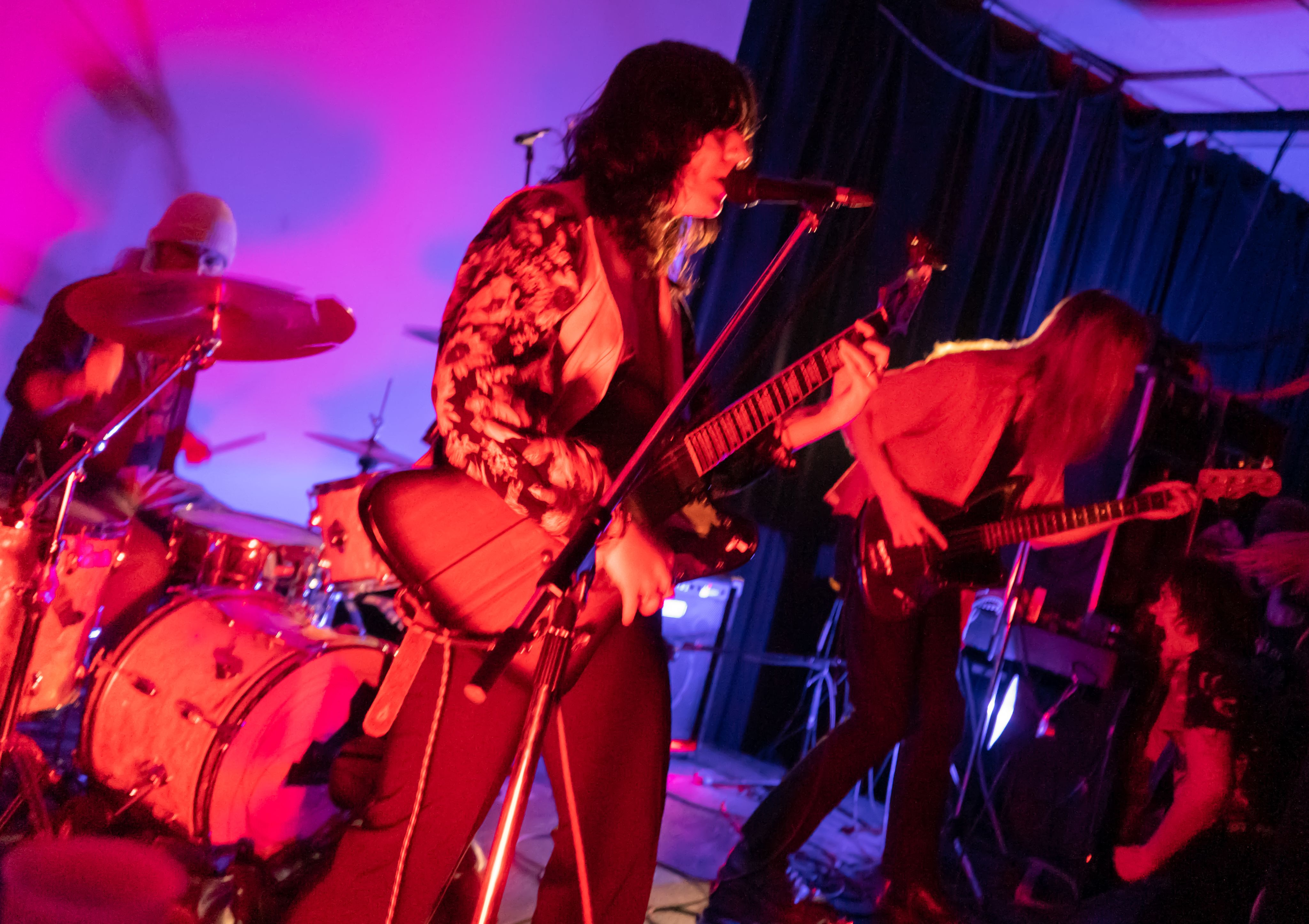
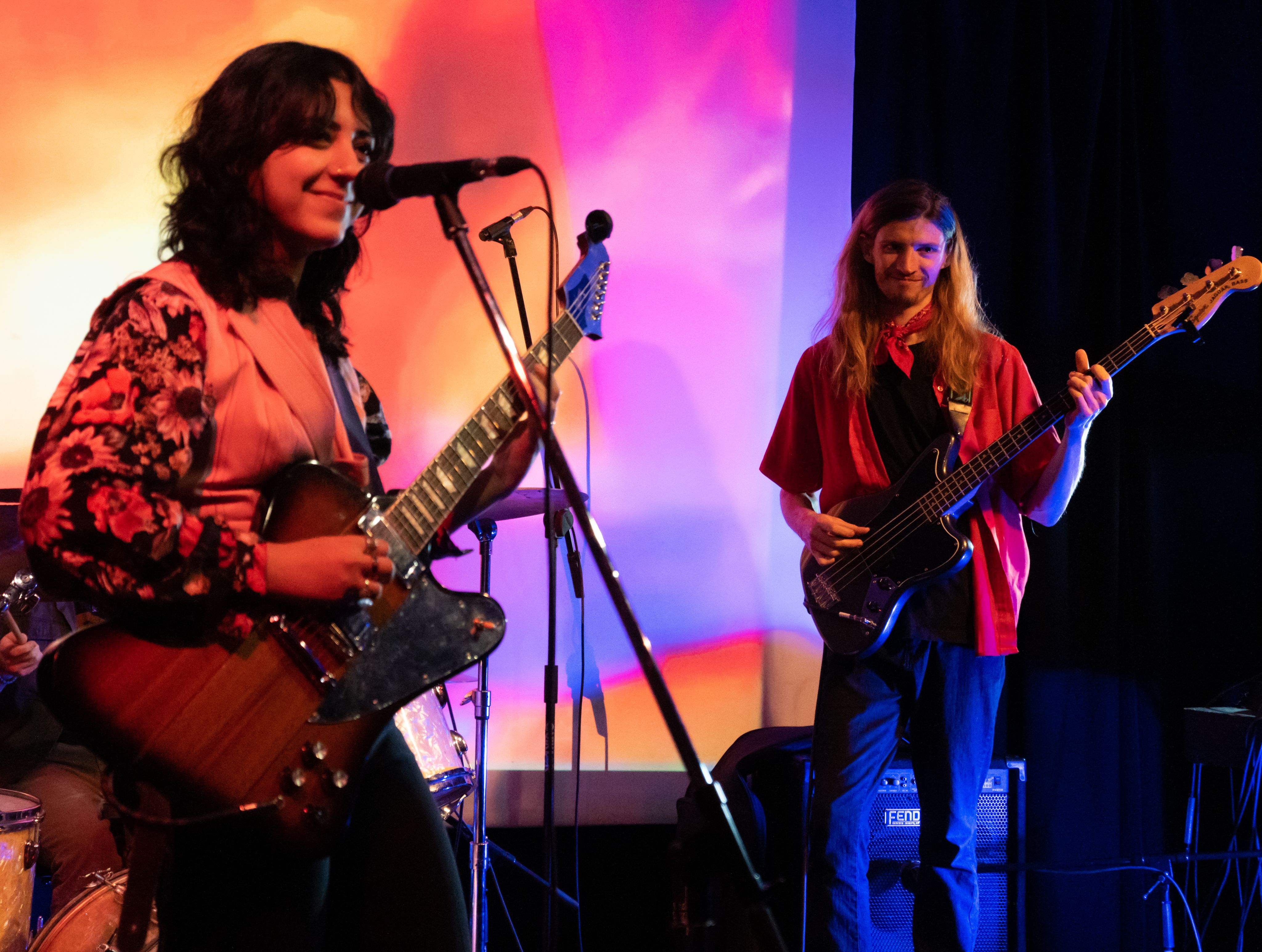
HOMA KHOSHNAVAZ

"There are definitely a lot of bands that formed during COVID and died during COVID as well because sometimes bands like us, or like SoyJoy, had a break to be able to follow what we wanted. Sometimes you see bands that were just doing it for a hobby, the same way that we used our music, but not looking at it as maybe their career. There were also a lot of bands during COVID that broke up, but the other band members started their own projects. So, COVID really played into that.
Our band started during Covid because we had enough money to spend on our rent, and we were also able to rent practice spaces, but we also were in a bubble, so that was safe for us, and we were watching who we were hanging out with.
We used to practice four times a week just to be able to get out of the house and still be in our own bubble. But that definitely helped a lot with the mental breakdown from being locked away.
I think that little break and being able to have some support from the government also helped a lot for us to be able to have a space to practice or even buy our gear.
Because we had all that time, we basically just focused on the music. That was one of the pros. There are obviously cons, but we got good during COVID.
We’re definitely a COVID band. We started in the summer of 2020, so we were one of the results."
- Homa Khoshnavaz
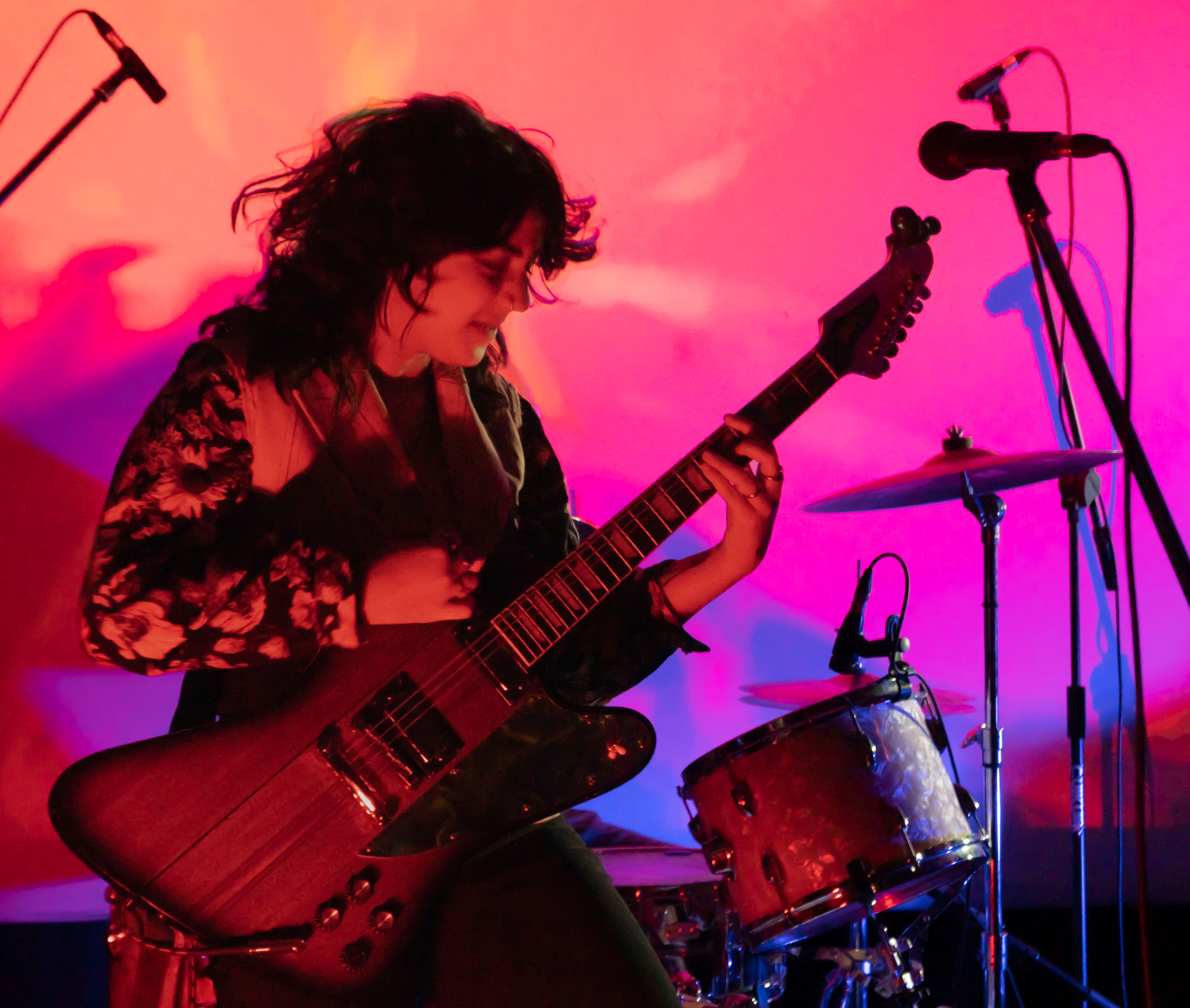
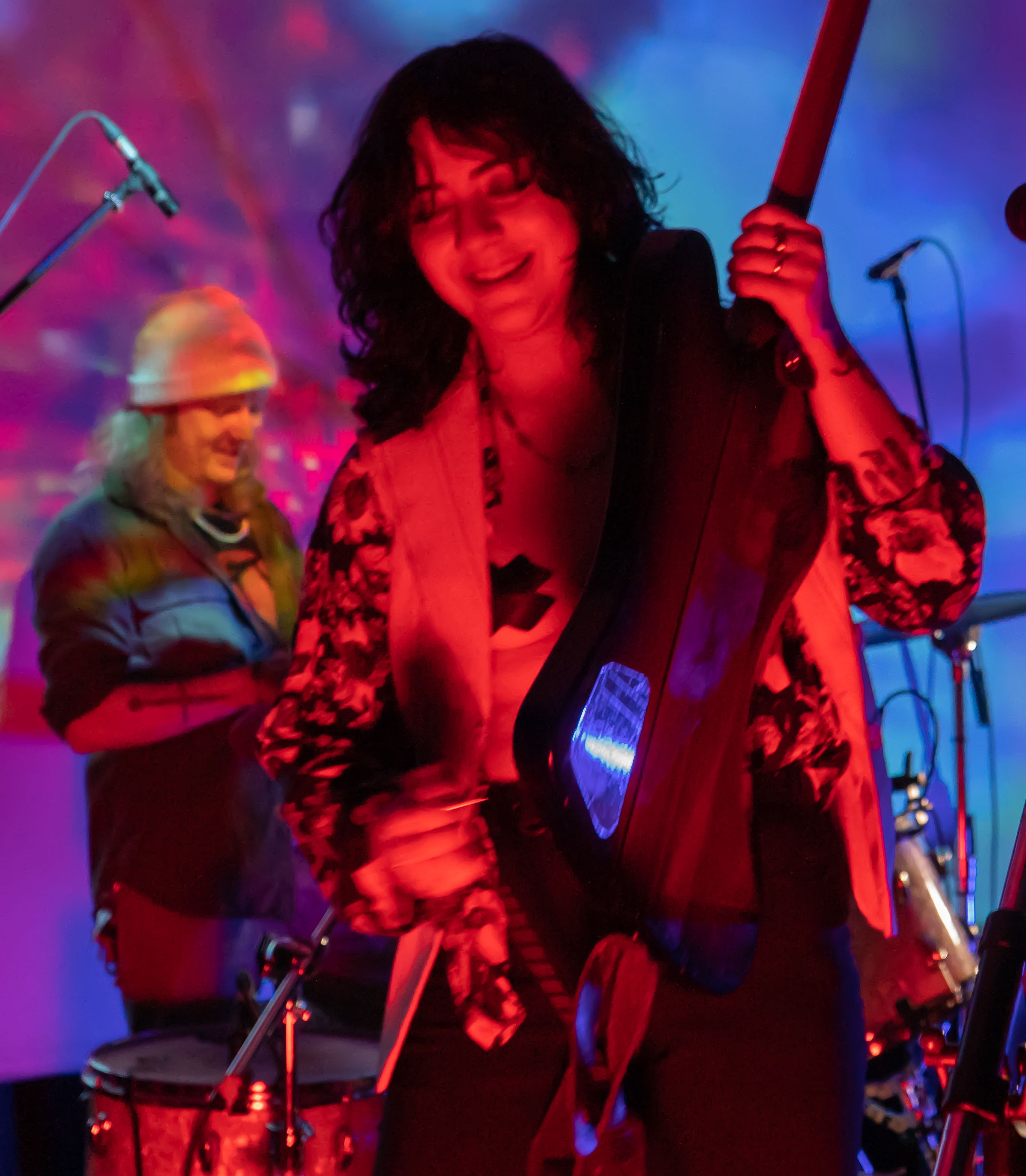
Peter Quelch:
"Such an extreme disruption or upset in your life really makes you realize what’s important in your life and what you want to pursue. So after three months of the initial lockdown, at the start, I had a whole bunch of hobbies. I was reading, and I was playing my bass guitar. I was writing and drawing. But after three months, all I was doing was playing music, and I’m like, ‘all right, I gotta go with this.’
Before Covid, I was playing music. I played in a couple of bands, but we weren’t serious or anything. We just played house shows and covers and that kind of thing. So Gadfly was the first serious band I was really a part of.
There are a lot of really awesome things about my life which wouldn’t have come to pass had it not been for the COVID lockdown. So, I’m just trying not to dwell on the negative and just focus on what was good about the pandemic and how it positively affected me. But, I would say that all across the board, bands and musicians are getting their livelihoods back, and we’re playing a whole bunch. So, whether you’re Gadfly or some other band, booking gigs isn’t hard anymore.
The biggest difference I’ve noticed is you’re seeing a lot more young people into genres like metal and hardcore. You had those genres before COVID, obviously, but having a lot of metal bands full of 20-year-olds was kind of unheard of before COVID, and now you’re seeing a whole bunch of that stuff."
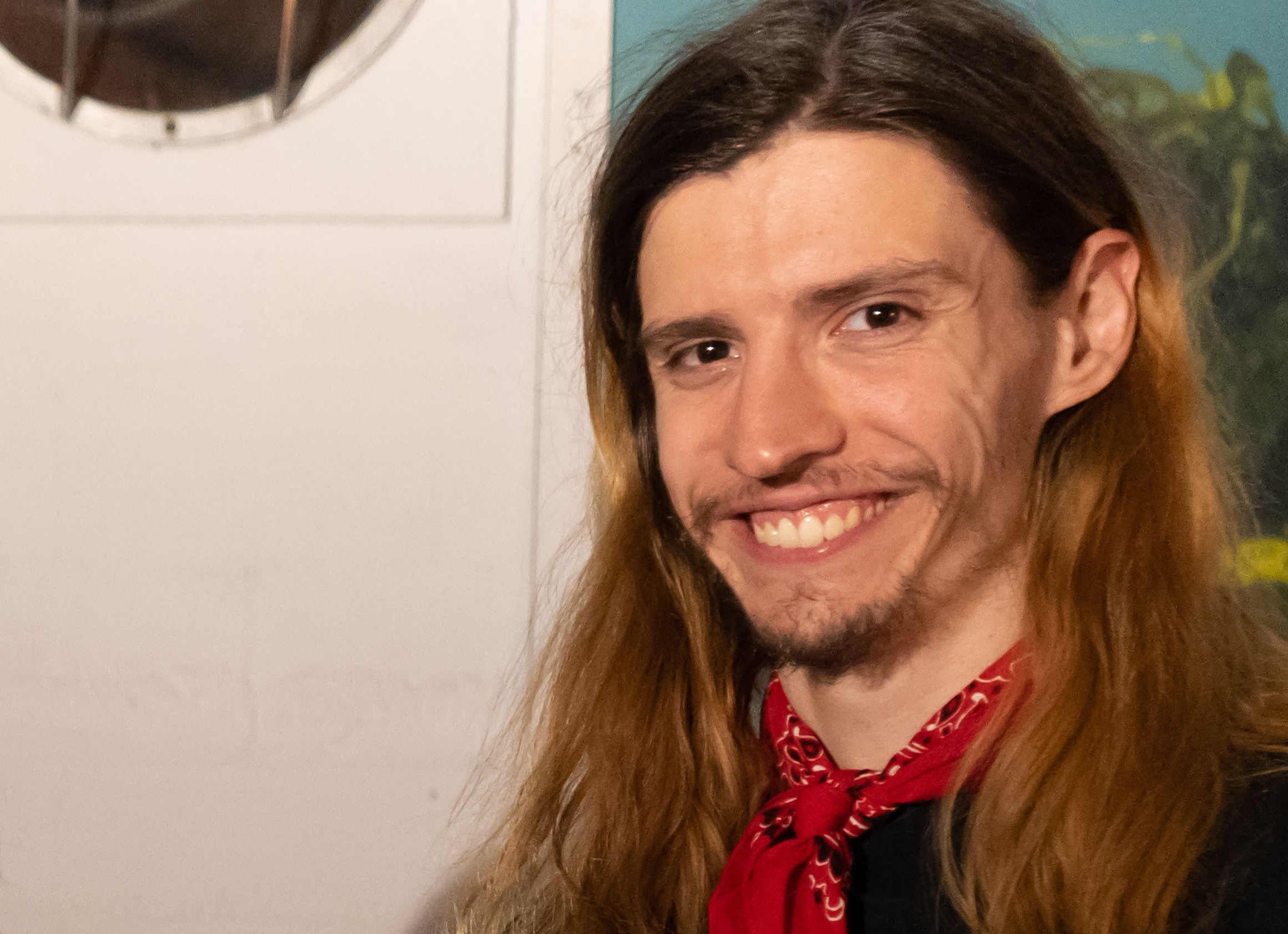
SOYJOY
SoyJoy is a folk-punk band made up of lead vocalist and guitarist Juniper Lee (they/them), bass player Corvin Mack, and drummer Kílila Raine.
Juniper is the primary songwriter for SoyJoy. The band initially started as Juniper's solo project before the pandemic.
“I’m mixed Korean, and I want to incorporate the sacred aspects of my heritage. I wanted to bring the sacredness back through culture, and I’m doing that through music now,” said Juniper.
“SoyJoy stands for anti-colonialism, and I think that incorporates capitalism, sexism, transphobia, and other axes of oppression that stem from European colonialism."
“I think every band member I’ve brought on board to SoyJoy has been trans, non-binary, or Two-Spirit. … All of our members are part of the BIPOC community. I’ve just wanted to show the world that LGBTQ+ and BIPOC folks can also play music and have fun, and I think that inspires other LGBTQ+ and BIPOC people in the local music scene to see someone that is part of their community create their own music.”
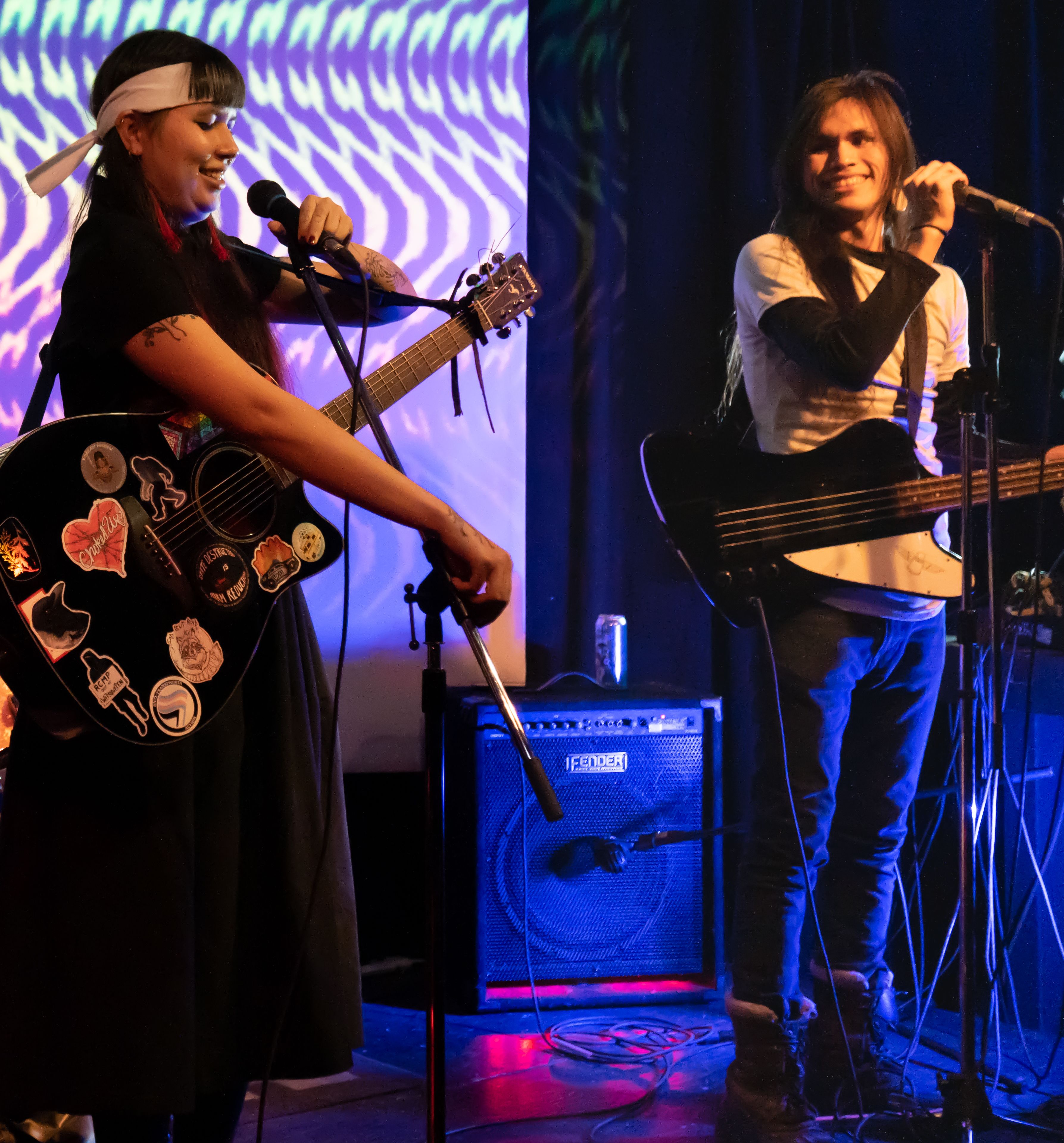
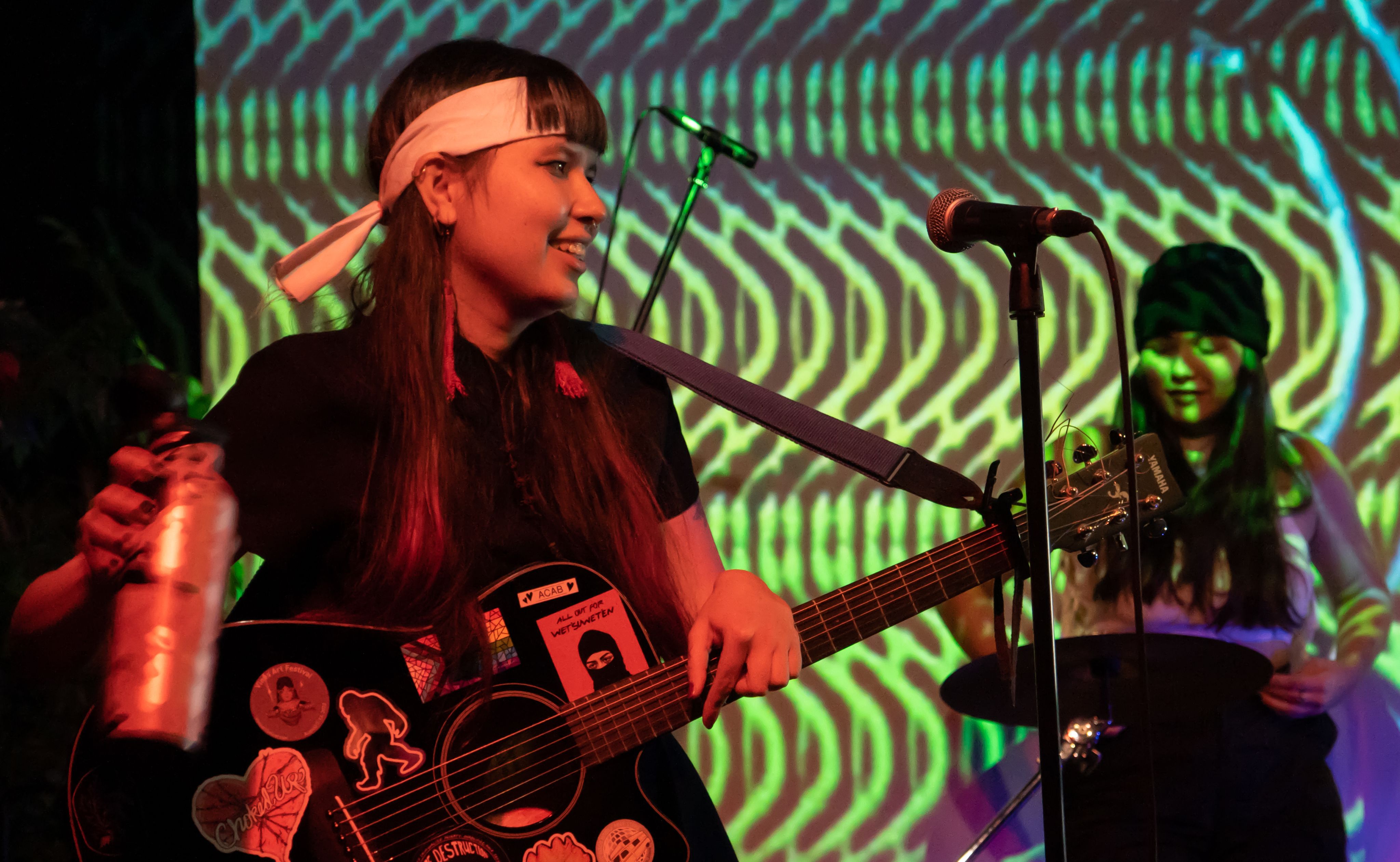
JUNIPER LEE
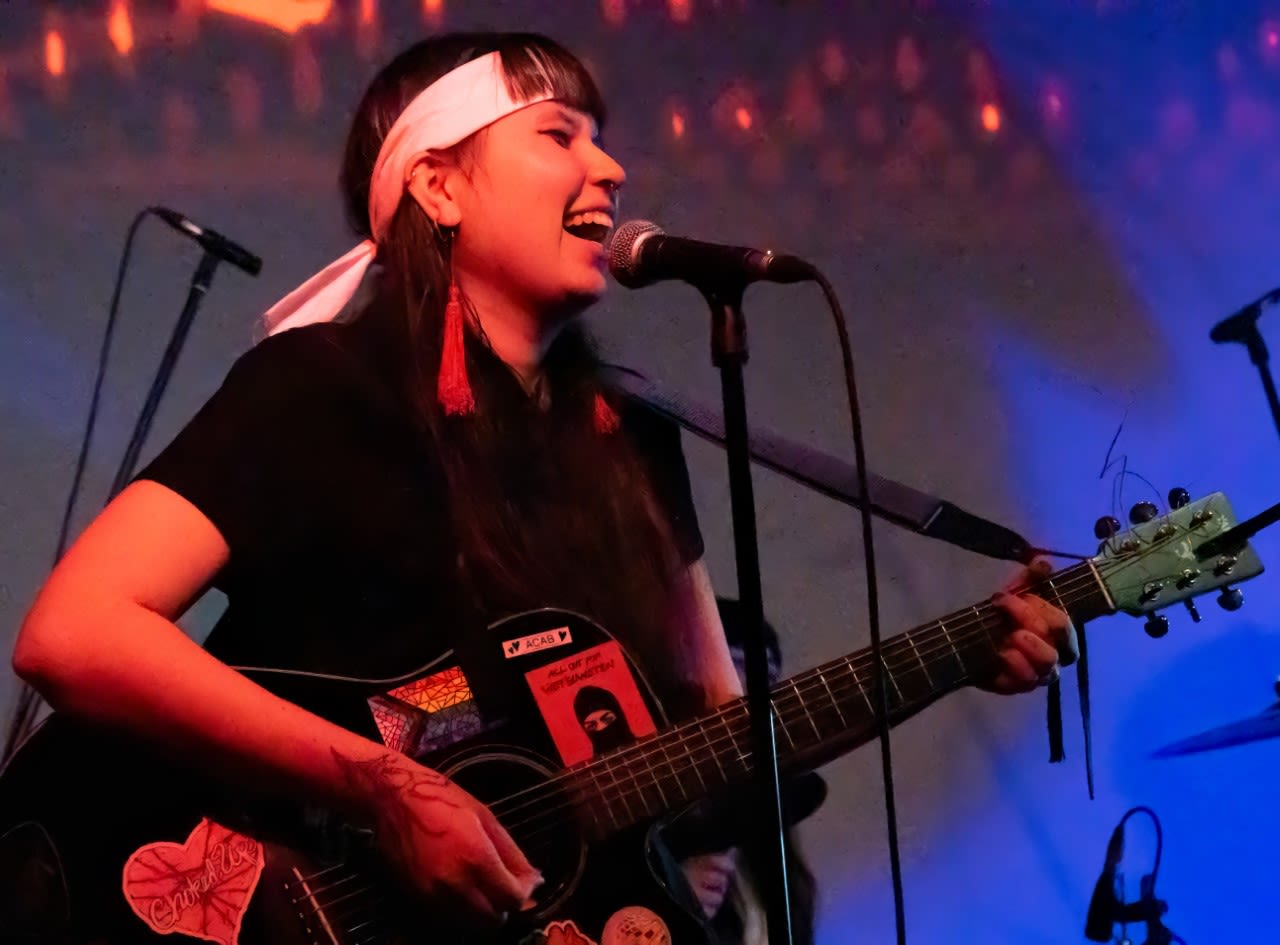
Juniper (they/them) was employed in Vancouver's childcare sector before the pandemic, but restrictions and the lockdown made them unable to keep their job. However, Juniper said that this lockdown period allowed them to write songs and focus on their passion for music.
“The lockdown gave me both the time and space to dig deep within myself and actually pause and figure out what kind of messages and feelings I want to convey.”
Juniper said that while they were mainly isolating during the initial stage of the pandemic, they also got involved in Indigenous land defence and began attending protests and blockades. At these protests, Juniper became better acquainted with their bandmates Kílila and Corvin.
Juniper said that they knew Corvin and Kílila through the protest actions, but they initially did not realize that both of them shared her passion for performing music.
"I started talking to a lot of people I’d been doing land support with, and I discovered that they also played music, and I’d known them for a few years, but I had no idea they played music.”
After connecting over music with Corvin and Kílila, Juniper started renting jam spaces with them, and they began shifting their focus to their passion for music.
“The pandemic really disconnected people from each other physically and on a mental and spiritual level, and live music had definitely brought people back together. … I think the pandemic created this desperate yearning and motivation for more music and collaboration.”
Juniper said that without the pandemic and its ensuing lockdowns and restrictions, they would not have had the opportunity to go to the protests and blockades where they became close with their bandmates.
They said that because of the circumstances that led to the band's creation, Juniper considers SoyJoy to be a “pandemic band” and a member of the new “COVID generation” of Vancouver musicians.
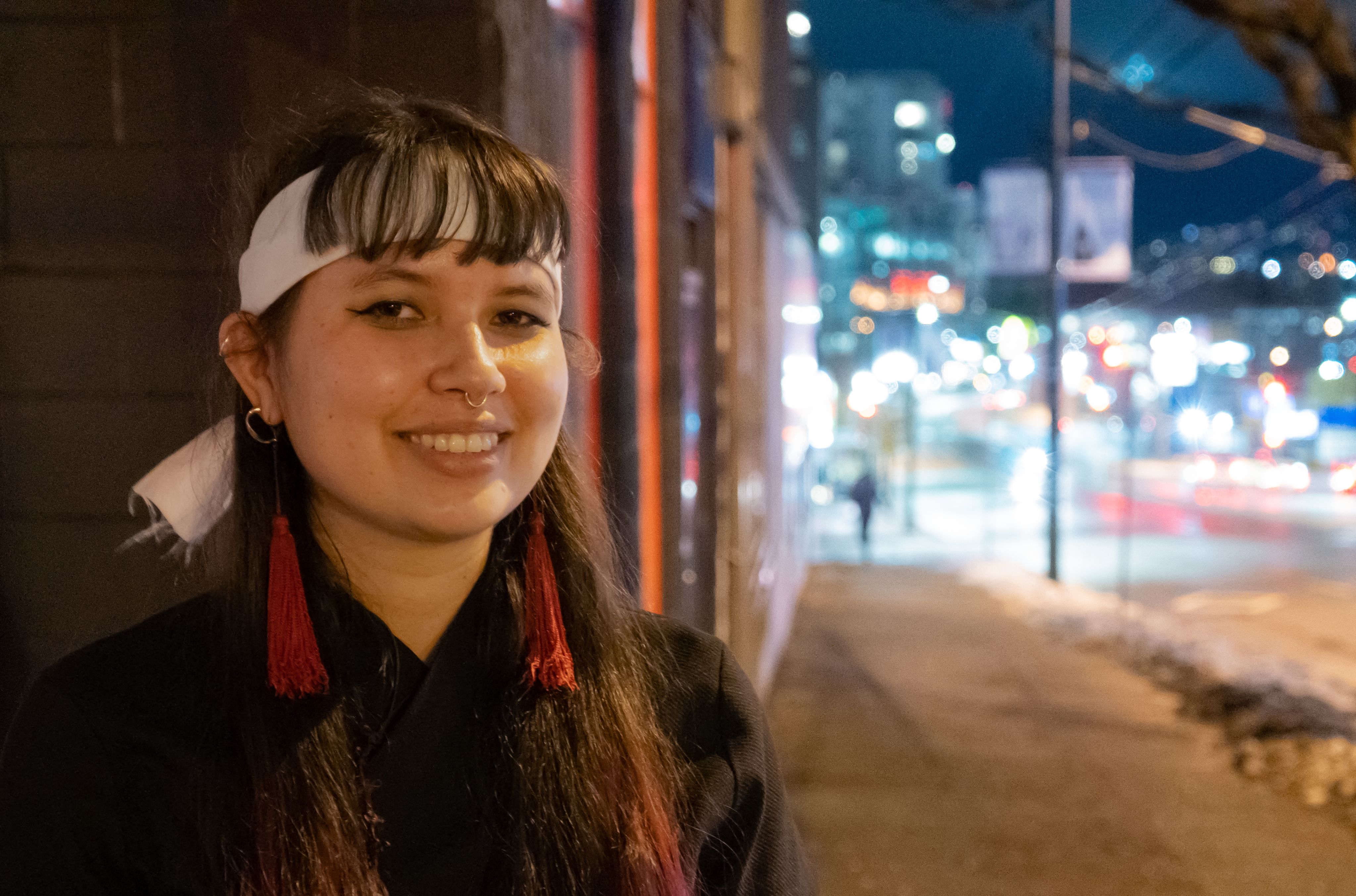
As Vancouver’s live music industry gains lost traction back from the pandemic, its local concert venues are hosting a new generation of diverse music acts.
While the pandemic was a curse to Canada’s established musicians, it was a blessing for some aspiring and developing performers. The disruption from the pandemic created circumstances where many artists had the “time and space” to pursue their creative passions and talents that they would not have had otherwise.
SoyJoy and Gadfly are new, developing local bands that are succeeding the past generation of Vancouver musicians that struggled to weather the period when live concerts were not permitted.
Cancade said he is shocked at how many of these promising young bands are making up this new generation of Vancouver musicians emerging from the pandemic.
“COVID happened, two years went by, and a whole new crew of young people are in the Vancouver music scene,” said Cancade. “There are so many young bands that I’ve never seen before getting into the scene. A lot can happen in two years.”
